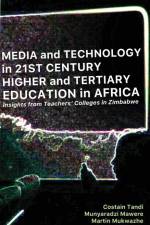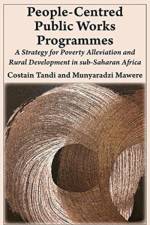av Costain Tandi
451
This book interrogates media and technology in the 21st century higher and tertiary education in Africa. Using Zimbabwe as its case study, thebook highlights the immense changes that the digital revolution has brought to higher institutions of learning in Africa, including changes in teaching and learning. Framed from an anti-colonial perspective, the book argues that digital change, though critical in revolutionising education in Africa, has come with a price as it has resulted in some epistemological erasures and injustices meted against the poor. The book makes a critical contribution as it quests to correct the misdemeanours and injustices caused by digital gaps in African societies. The authors argue that the future and success of digital technology in Africa lie in how well African countries will culturally and contextually sensor technology and attend to the problems caused by digital gaps. The book provides a re-invigorated overview and nuanced analyses of the role of media and technology in revolutionising 21st century higher and tertiary education in Africa. It provides pointers and insights on how African countries can reformulate their education policy in a manner that is in sync with the level of digital technology of the time. This is an important addition to critical debates on media and technology studies in education in Africa.COSTAIN TANDI is a PhD Candidate at Tilburg University in the Netherlands, and a Principal Lecturer for National and Strategic Studies at Mkoba Teachers College, Gweru, Zimbabwe. His research interests include Indigenous Knowledge Systems, Climate change and Variability, Rural Poverty, Agriculture, Community Development, Cultural Studies, African Jurisprudence (African Philosophy of Law), Ethnographic methodologies, Sociology of Development, and Entomology. MUNYARADZI MAWERE (PhD) is Professor Extraordinarius of Interdisciplinary Research in the School of Interdisciplinary Research and Graduate Studies at the University of South Africa, and a Full Professor of African Studies and incumbent Research Chair in the Simon Muzenda School of Arts, Culture and Heritage Studies at Great Zimbabwe University in Zimbabwe.MARTIN MUKWAZHE is a PhD Candidate at the University of South Africa, and the incumbent Principal of Mkoba Teachers College, Gweru, Zimbabwe. His research interests include African Philosophy, Philosophy of Education, Metaphysics, Philosophy of Science, and Ethics


